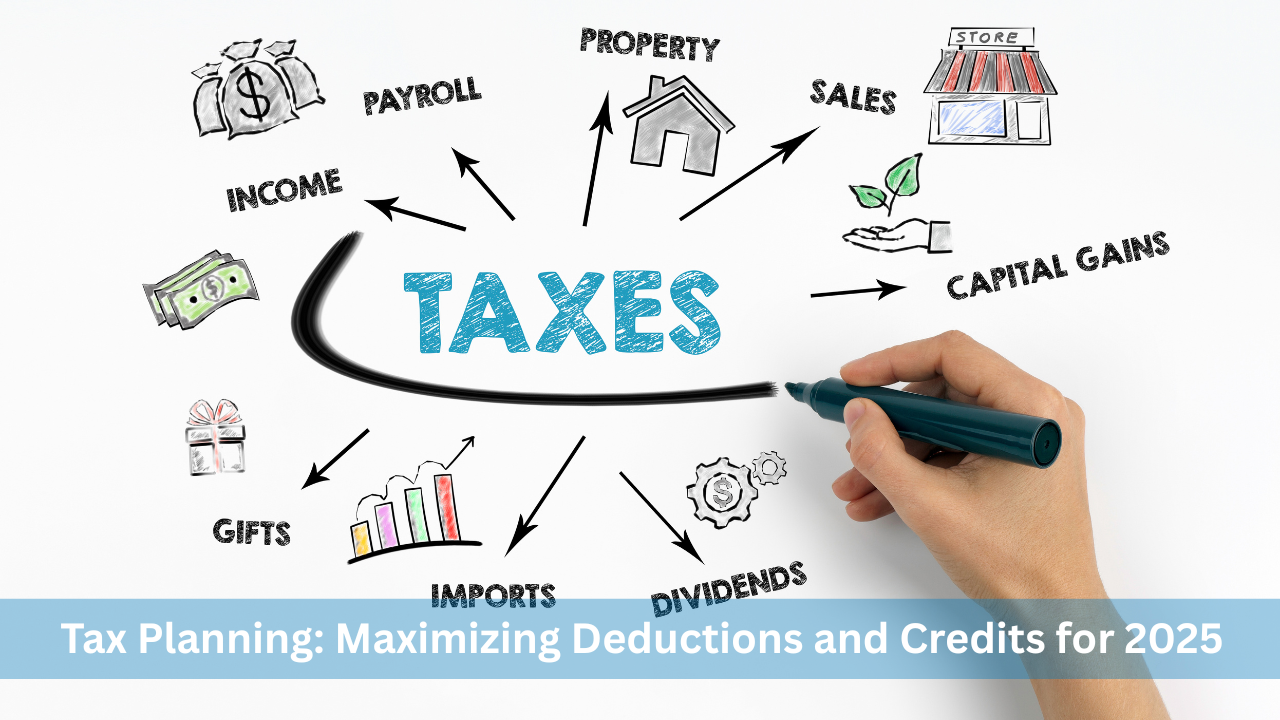Tax Planning: Maximizing Deductions and Credits for 2025
Tax planning is an essential part of managing your finances wisely. It helps you reduce your tax liability legally, so you can keep more of your hard-earned money. Whether you are a salaried employee, a freelancer, or a small business owner in India, understanding how to maximize deductions and credits can make a significant difference in your financial health.
In this blog, we will explore key aspects of tax planning for the financial year 2025, focusing on practical steps that are easy to follow and beneficial for the Indian taxpayer.
For more detailed guides and updates on finance and investing, you can always visit Your Story.
Understanding the New Tax Regime in 2025
The Indian government continues to update tax laws to make filing simpler and more beneficial for taxpayers. For the financial year 2025-26, some important changes have been introduced under the new tax regime.
One of the biggest changes is the increase in the basic exemption limit. Now, individuals with an income up to ₹12.75 lakh may not have to pay any tax after accounting for standard deductions and rebates. The standard deduction for salaried individuals has also been increased to ₹75,000.
These changes aim to provide relief to taxpayers and simplify the filing process. However, deciding between the old and new tax regimes depends on your personal financial situation. You can learn more about these regimes on Your Story.
How to Maximize Your Tax Deductions?
Even with the new tax regime’s simpler structure, certain deductions are available that can help reduce your taxable income further. Knowing which deductions apply to you and how to claim them can save you a substantial amount of money.
1. Section 80C – Your Go-To Investment Deduction
One of the most popular sections for tax savings is Section 80C. It allows deductions up to ₹1.5 lakh on various investments and expenses, including:
- Contributions to Public Provident Fund (PPF)
- Employee Provident Fund (EPF)
- Life insurance premiums
- Equity Linked Savings Scheme (ELSS)
- Principal repayment on home loans
- National Savings Certificate (NSC)
By wisely investing in these instruments, you not only save on taxes but also build a solid foundation for your financial future. More details on Section 80C and investment tips can be found on Your Story.
2. Section 80D – Health Insurance Benefits
Healthcare expenses can be costly, but the government offers relief through Section 80D. You can claim deductions on premiums paid for health insurance for yourself, your family, and your parents.
- Up to ₹25,000 for health insurance of self and family
- Additional ₹50,000 for senior citizen parents
- Up to ₹5,000 for preventive health check-ups
These benefits encourage people to invest in health insurance and take preventive care seriously, which also leads to tax savings.
3. Section 80CCD(1B) – National Pension System (NPS)
Contributions to the National Pension System qualify for an additional deduction of ₹50,000 beyond the ₹1.5 lakh limit of Section 80C. Investing in NPS not only helps in retirement planning but also lowers your taxable income.
You can read more about pension options and tax benefits on Your Story.
Benefits for Homeowners
If you have taken a home loan, you can claim tax benefits on both the principal and interest components.
- Under Section 24(b), you can deduct up to ₹2 lakh on the interest paid on your home loan.
- The principal repayment qualifies for deduction under Section 80C within the ₹1.5 lakh limit.
These benefits are generally available under the old tax regime, so if you have a home loan, it’s worth calculating which tax regime suits you better.
Choosing Between Old and New Tax Regimes
One of the biggest decisions for taxpayers is choosing between the old and new tax regimes.
- The new tax regime offers lower tax rates but fewer deductions.
- The old tax regime has higher tax rates but allows many deductions and exemptions.
Your choice depends on your financial habits. If you have substantial investments and eligible expenses, the old regime might save you more tax. However, if you prefer simplicity and have fewer deductions, the new regime could be better.
For a detailed comparison and tools to help you decide, visit Your Story.
Practical Tips for Effective Tax Planning
- Start Early: Don’t wait until the last moment to invest or claim deductions. Planning ahead allows you to spread investments throughout the year.
- Keep Records: Maintain proper documentation of your investments, insurance premiums, and other deductible expenses.
- Use Technology: Several apps and websites, including those highlighted on Your Story, can help track your tax-saving investments and ease your tax filing process.
- Seek Advice: If your finances are complex, consulting a tax professional can ensure you don’t miss out on any deductions.
Final Thoughts
Tax planning is not just about saving money; it’s about making your finances work better for you. By understanding and using available deductions and credits, you can reduce your tax liability, increase your savings, and plan for a more secure financial future.
For ongoing updates, easy-to-understand articles, and expert advice on finance and investing, keep visiting Your Story. Taking charge of your tax planning today will benefit you for years to come.







